Did you know that upgrading to an energy efficient heating system can slash your home heating bills in half? In a world where every penny and every watt matters, understanding the secrets of efficient heating isn’t just smart—it’s essential. Uncover surprising trends, expert advice, and easy upgrades that can transform your comfort, reduce your energy bills , and help save the planet, all while keeping you warm and cozy this winter.
Unlocking Energy Efficient Heating: Surprising Trends and Proven Benefits
- Did you know that switching to an energy efficient heating system can cut household heating costs by up to 50%? Discover what makes energy efficient heating essential in today’s market, and how it benefits both your wallet and the planet.

Today’s energy efficient heating technologies aren’t just buzzwords—they’re a revolution in home comfort. As climate change becomes a pressing issue, the need for efficient heating solutions is more crucial than ever. Heating accounts for a major portion of most home energy use, especially in colder countries like the United States and the UK. Homeowners are increasingly moving toward systems that don’t just heat, but smartly manage energy usage, keeping heating bills and environmental footprint to a minimum. Whether you’re tired of rising energy costs or want a greener home, adopting these cutting-edge heating systems can be a win-win solution.
The knock-on effects go beyond just financial savings. Modern efficient heating systems , such as heat pumps and programmable thermostats, offer precise temperature controls, quieter operation, and improved air quality over outdated heating setups. Plus, as governments and utility companies roll out more rebates and incentives, there’s never been a better time to make the switch to an energy efficient heating system.
For even more practical ways to boost your home's efficiency and see immediate results on your energy bills, check out these energy efficient heating tips for instant savings . These actionable strategies can complement your system upgrade and help you maximize every pound or dollar spent on heating.
Key Takeaways: What You'll Master About Energy Efficient Heating
- The latest advancements in efficient heating systems
- Comparing heat pump, electric heat, and gas furnace technologies
- Essential steps for maximizing energy efficiency
- How to choose an efficient heating system for your home
Understanding Energy Efficient Heating: Core Concepts and Buyer Triggers
What Is Energy Efficient Heating and Why Is It So Important?
Energy efficient heating is all about getting the most warmth for the least amount of energy spent. This means using technologies and strategies that let you heat your home while consuming less fuel, whether you’re relying on a heat pump , electric heat , or a modern gas furnace . Why is this important? Because energy prices keep climbing, and older heating systems are notorious for wasting energy, leading to higher utility bills and unnecessary carbon emissions.
The crucial driver behind efficient heating is the combination of comfort, affordability, and sustainability. With efficient heating, households can combat soaring energy bill pressures, enjoy a consistently warm home, and actively reduce environmental impact. More people are factoring in environmental impact and long-term savings at the point of purchase—making modern heating system upgrades more appealing than ever.
In short, efficient heating keeps you cozy, cuts costs, and helps the planet. Now, let’s see how new systems outshine traditional setups—and what exactly sets them apart in today’s energy-hungry world.
Comparing Traditional Heating Systems vs. Modern Energy Efficient Heating Systems
- efficient heating
- heating system differences
- long-term savings
- environmental impact
Traditional heating systems —like old gas boilers, baseboard heaters, or outdated electric heating units—tend to be energy hogs. They often lose significant heat through poorly insulated pipes and ducts, or burn fuel less efficiently. In contrast, modern energy efficient heating systems incorporate technology to extract more heat from less energy, often using innovative methods like heat pumps or advanced digital controls.
The difference in performance can be dramatic. Where an older furnace may convert only 70% of energy into heat (losing the rest up the chimney), today’s best heat pumps and condensing gas furnaces can reach efficiencies of 95% or higher. Over time, this means much lower energy bills , less maintenance, and fewer worries for homeowners.
Beyond the financial aspect, updating to efficient heating is an environmentally friendly move. Modern systems reduce household carbon footprints, align with eco-friendly home standards, and help meet stricter energy efficiency regulations. For anyone weighing up a new heating system, understanding these core differences—and the potential for long-term savings—makes a strong case to upgrade.
| System Type | Average Efficiency | Annual Operating Cost (USD) | Environmental Footprint |
|---|---|---|---|
| Old Gas Furnace | 60-75% | $1,500-$2,500 | High CO 2 , high fuel |
| Electric Baseboard Heat | 85-90% | $2,000-$3,000 | High grid load |
| Modern Heat Pump | 250-350% (COP 2.5-3.5) | $800-$1,200 | Very low CO 2 |
| Geothermal Heat Pump | 400% (COP 4) | $500-$1,000 | Lowest CO 2 |
| Condensing Gas Furnace | 95-98% | $1,200-$1,800 | Moderate CO 2 |
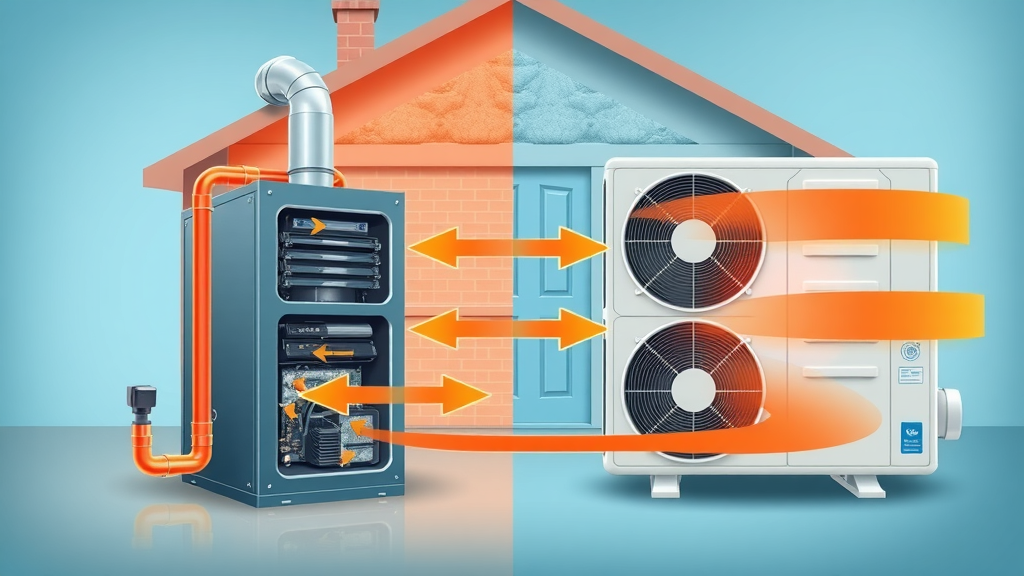
Decoding Heating System Types: Which Energy Efficient Heating Is Right for You?
Exploring Heat Pump Technologies for Maximum Energy Efficiency
Heat pumps are at the heart of the newest energy efficient heating systems . Unlike traditional heaters that create heat by burning fuel, heat pumps move heat from outside to inside—even on cold days! In temperate climates, air and source heat pumps can operate at three hundred percent efficiency or more, meaning they deliver three times as much heat energy as the electricity they consume. For those in colder regions, geothermal heat pumps use the earth’s constant underground temperature to provide one of the most efficient and sustainable heating solutions available.
These technologies use reversible cycles, meaning they also provide efficient cooling during summer. Because heat pumps use electricity efficiently rather than burning fuel, they dramatically reduce your energy bill and carbon output. This has made them a leading choice for forward-thinking homeowners aiming to upgrade to an efficient heating system.
Installation costs are generally higher up front compared to replacing a traditional furnace, but lower operating costs quickly make up for this investment—especially when energy savings and longevity are factored in. For families looking for both comfort and cost control, heat pumps are hard to beat.
Electric Heat and Electric Heating: Pros, Cons, and Application Areas
Electric heat is another common choice for modern heating systems , especially in areas where gas isn’t available. From traditional baseboard heat to innovative radiant floor systems, electric heating offers easy installation and low upfront costs. Electric furnaces are also becoming more efficient, especially when paired with smart thermostats and home automation.
The downside? Operating costs can be higher in regions with expensive electricity rates, and electric heating is only as green as the power grid. That said, pairing electric heat with solar or renewable energy makes it an environmentally friendly option. Upgrades like programmable thermostats or occupancy sensors can maximize efficiency by ensuring you only heat the rooms you actually use.
For compact spaces, additions, or where ductwork isn’t available, electric heat is a safe, flexible, and quickly responsive solution. In moderate climates, it remains a simple option for maintaining cozy comfort year-round.
Efficient Heating System Options: Gas Furnace, Electric Furnace, Geothermal Heat Pump
Choosing the right efficient heating system involves weighing several factors: upfront cost, local energy prices, and the specific needs of your home. A modern gas furnace provides reliable heating in colder climates and can be cost-effective with today’s high-efficiency units. Electric furnaces are simpler to install and maintain, but shine best where electricity is cheap or green. Geothermal heat pumps deliver the lowest operating costs and the highest energy savings , though require more complex installation and a suitable yard space.
Each system has a place in the market, and in many homes, a hybrid approach or zoned heating solutions deliver the best comfort and efficiency. For example, combining a geothermal heat pump for base heating with an efficient gas furnace for backup can balance costs and reliability in areas with severe winters.
When shopping for a new heating system, always check for energy star certification, compare efficiency ratings , and consult an expert to match the system to your home’s unique needs.
What Are Energy Star Heating Systems and Why Do They Matter?
Energy Star certified heating systems represent the industry’s gold standard. Rigorously tested by official agencies, these systems guarantee high energy efficiency , top-tier performance, and reliability. When you see the Energy Star blue label, you know your home heating upgrade will use less energy, reduce greenhouse gas emissions, and save money long-term.
Energy Star is more than just branding—it unlocks access to instant rebates, tax credits, and special financing from gov websites and local agencies. Qualified products, like the latest heat pumps and gas furnaces, usually exceed minimum efficiency standards and come with better manufacturer warranties. Choosing Energy Star isn’t just a smart move for your wallet—it’s also a pledge to ongoing home comfort and sustainability.
Ask your installer about Energy Star rebates in your area, and always prioritize certified products when making your next heating investment.
| Heating System Type | Average Annual Cost | Typical Efficiency Rating | Energy Star Certified? |
|---|---|---|---|
| Heat Pump (Air Source) | $800-$1,200 | 250-350% (COP 2.5-3.5) | Yes |
| Geothermal Heat Pump | $500-$1,000 | 400% (COP 4) | Yes |
| Electric Heat | $2,000-$3,000 | 85-100% | Sometimes |
| Gas Furnace | $1,200-$1,800 | 95-98% | Yes (high-efficiency models) |
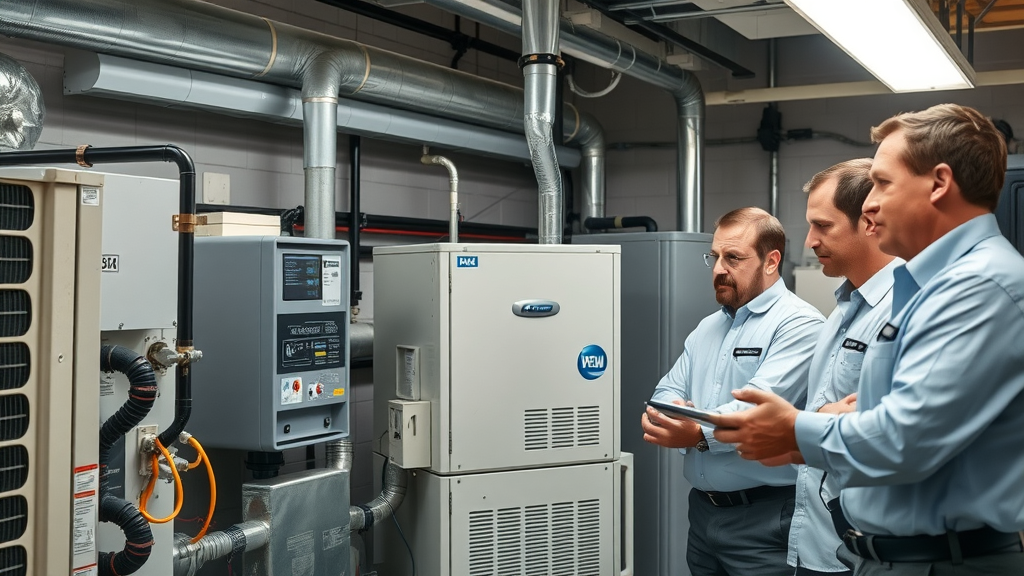
The Science of Energy Efficiency: How Efficient Heating Works
How Source Heat Pump and Geothermal Heat Reduce Energy Usage
The real magic of a source heat pump (air or geothermal) is its ability to move heat rather than generate it through burning fuel. In practice, a heat pump extracts warmth from the air, ground, or water outside your house—even at sub-zero temperatures—and “pumps” it indoors. This process is ultra-efficient, often yielding two to four units of heat for every unit of electricity spent.
Geothermal heat pumps take this a step further, using the earth’s stable underground temperature to ensure steady, all-season efficiency. This translates to much lower energy use, smaller carbon footprints , and the kind of consistent indoor comfort that traditional systems simply can’t offer.
With climate concerns on the rise and stricter energy efficiency standards, these advanced methods are powering a new era of energy efficient heating worldwide.
Understanding Energy Efficiency Ratings and What They Mean for You
When shopping for an efficient heating system , understanding efficiency ratings is key. Look for metrics like AFUE (Annual Fuel Utilization Efficiency) for furnaces or COP (Coefficient of Performance) for heat pumps. The higher these numbers, the more efficiently your system turns energy into heat.
For air source heat pumps and electric furnaces, seek out units with higher COP or HSPF (Heating Season Performance Factor) ratings. Geothermal heat pump systems often boast the very highest ratings and lowest operating costs. Remember, a minor boost in efficiency can add up to big savings on your utility bill and shrink your home’s environmental impact.
“Today’s energy efficient heating systems can achieve up to 98% efficiency, transforming how homes manage winter comfort.” – Energy Savings Trust
The Most Energy Efficient Heating System: A Detailed Look
What Is the Most Energy-Efficient Heating System?
- Heat pump, geothermal heat pump, and high-efficiency electric furnace comparison
So, what’s the champion of energy efficient heating systems ? The geothermal heat pump stands out as the top contender, delivering the highest efficiency (COP of 4 or more) and the lowest running costs. Close behind are air-source heat pumps, which also outperform traditional systems, especially in moderate climates. High-efficiency electric furnaces are a good alternative in all-electric homes, but nothing beats the all-season, low-energy consumption of a geothermal setup.
Of course, the “best” system depends on your climate, energy prices, and house design. When installed well, any Energy Star heat pump or high-efficiency furnace can save significant money—while reducing your environmental footprint.
Talk to a trusted professional, compare efficiency ratings, and check which system fits your home and budget for the best results in efficient heating.
Cost, Longevity, and Energy Savings: What to Consider When Investing in an Efficient Heating System
Investing in a new efficient heating system requires looking beyond the price tag. While geothermal and air source heat pumps demand higher initial costs, they pay for themselves over the years thanks to dramatic energy savings and longer lifespans—often 20+ years for heat pumps, compared to 12-15 for traditional furnaces.
Factor in reliability: Efficient systems mean fewer repairs and less frequent replacements. Ongoing energy bill reductions help most homeowners recoup their investment within three to seven years, depending on location and system choice.
Government rebates, local incentives, and Energy Star financing can ease the upfront burden, letting you start saving money—and living more comfortably—almost immediately.
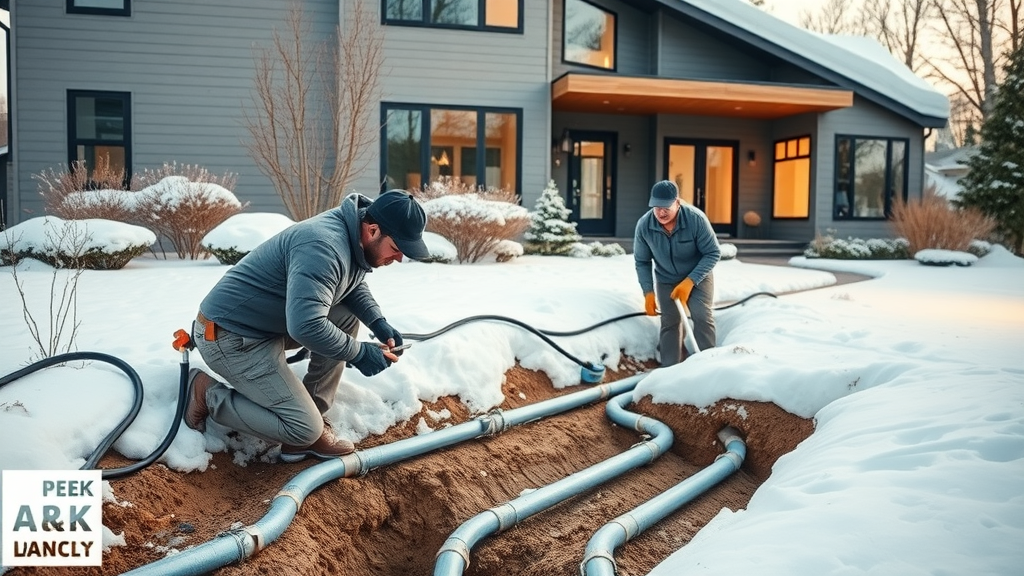
Optimizing Your Home: Maximizing Energy Efficiency with Your Current Heating System
Simple Upgrades to Increase Heating System Efficiency
You don’t have to start from scratch to enjoy energy saving benefits. Small tweaks can make any home heating system more efficient. Start by sealing leaks in windows, doors, and ducts to prevent precious heat escaping. Upgrade insulation in attics, floors, or crawlspaces to reduce the workload on your current system.
Replace old or dirty filters monthly, schedule annual maintenance, and bleed radiators to ensure smooth, efficient heat flow. These straightforward steps can reduce your heating bill by as much as 15%—without any major investment.
Finally, consider adding smart zoning controls or insulating drapes to make each room comfortable on demand. These tiny changes lay the foundation for a truly efficient heating system .
Smart Thermostats and Efficient Heat Settings for Maximum Savings
- energy efficient heating
- electric heat
- programmable thermostats
- insulation tweaks
Smart, programmable thermostats are a low-cost powerhouse for energy saving . They learn your schedule and automatically adjust temperatures—warming the home just before you arrive and backing off while you’re away or sleeping. Experts recommend setting the thermostat to 68°F (20°C) during winter days, and lowering it at night or while you’re out to maximize energy use.
When paired with efficient heating equipment, smart thermostats provide real-time usage feedback, so you can track savings directly on the device or app. Combine these with simple insulation upgrades around doors and windows, and your home will maintain a steady, cozy temperature without unnecessary energy waste.
These tech-savvy tools often pay for themselves in less than two years, and most Energy Star systems are designed to work perfectly with smart thermostat controls.
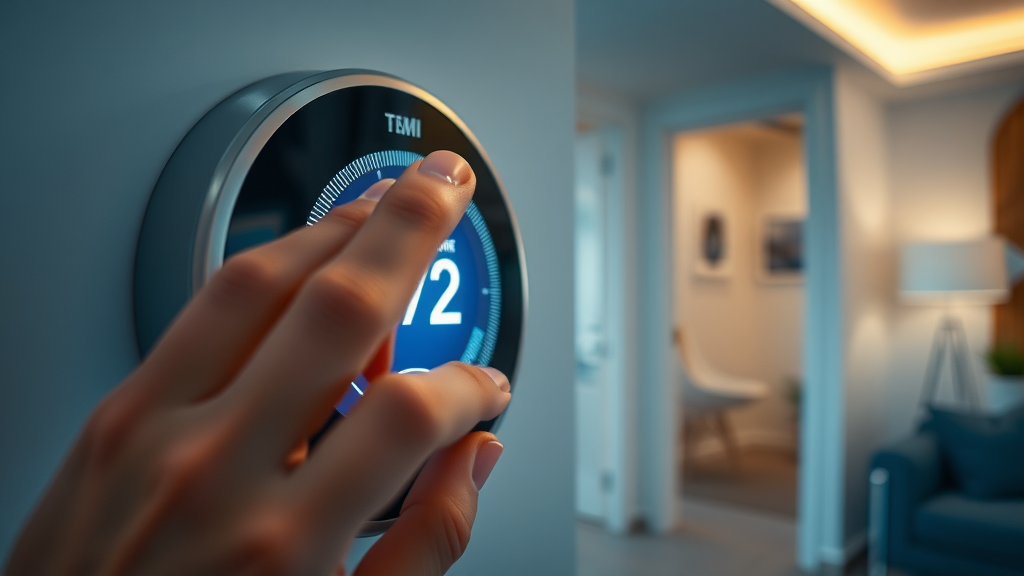
Professional Advice: When to Upgrade to a More Efficient Heating System
Signs Your Home Heating System Is Wasting Energy
How do you know when it’s time to upgrade your home heating system ? Warning signs include uncomfortably cold rooms, high energy bills even after basic maintenance, and old furnaces that struggle to heat rooms evenly. If your system cycles on and off too frequently or your home is always stuffy or drafty, it likely isn’t running efficiently.
Other signs include yellow furnace flames (instead of blue), increased dust/allergens in the air, or the need for frequent repairs. When maintenance costs start to pile up, and you find yourself calling for repairs each season, upgrading to an efficient heating system will quickly pay for itself in comfort and lower bills.
If your system is over 15 years old, consider a home energy audit to identify efficiency leaks. Sometimes, small upgrades are enough, but an expert can help you decide if a total replacement will be most effective in the long run.
Choosing Between Electric Heating, Gas Furnace, and Heat Pumps: Key Factors
The best heating system for your home depends on several factors: climate, utility rates, space constraints, and personal preferences. Electric heating works well for smaller spaces or additions, especially when paired with renewable energy. In colder regions, a modern gas furnace or dual-fuel setup may be more cost-effective, offering strong performance even in icy conditions. If you want all-in-one heating, cooling, and unbeatable efficiency, a heat pump is hard to beat.
Don’t forget to consider installation space (especially for geothermal systems), upfront costs, and any rebates available in your area. Consult trusted professionals—and always ask about energy star models or heat pumps that match your unique home layout for the greatest comfort and savings.
Most importantly, plan for the future: Modern energy efficient systems bring added home value, improved air quality, and lasting peace of mind.
Video Guide: Visual Tour of Cutting-edge Energy Efficient Heating Systems
- Step-by-step visuals: How heat pumps, geothermal systems, and smart thermostats transform home heating.
People Also Ask: Expert Answers About Energy Efficient Heating
What is the most energy-efficient heating system?
- Geothermal heat pump systems are widely recognized as the most energy-efficient heating systems, offering the highest efficiency ratings and significant cost savings over time.
What is the most energy-efficient way to use heating?
- Use programmable thermostats, maintain regular system service, seal windows/doors for insulation, and keep heat settings at optimal (recommended) levels.
What type of heater is most energy-efficient?
- For homes, heat pumps—especially geothermal and air source varieties—are considered the most energy-efficient heater types.
What is the most energy-efficient heat setting?
- Generally, 68°F (20°C) during the day and lower at night or when you’re away maximizes energy efficiency without sacrificing comfort.
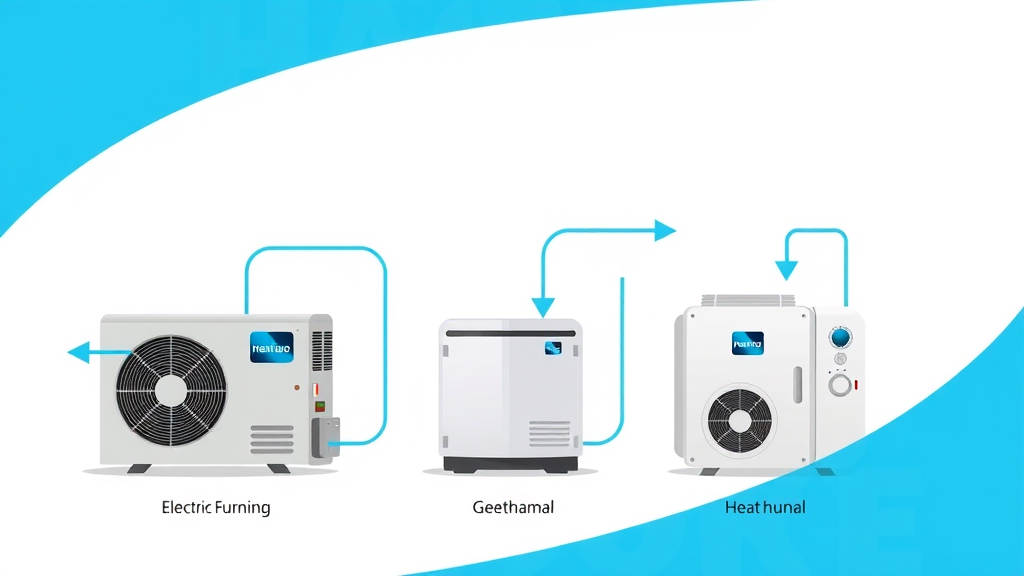
Tips & Tricks: Upgrading to an Energy Efficient Heating System Made Simple
- Conduct a home energy audit before upgrading
- Choose Energy Star-certified heating systems
- Install programmable thermostats for enhanced control
- Schedule annual maintenance
Real-World Results: Efficiency Success Stories
"After switching to an energy efficient heat pump, our energy bills dropped by 45% within the first year." – Homeowner, Sheffield
| Before Upgrade | System | Annual Heating Bill | After Upgrade | System | Annual Heating Bill | % Savings |
|---|---|---|---|---|---|---|
| 2019 | Old Gas Furnace | $2,100 | 2020 | Air-Source Heat Pump | $1,200 | 43% |
| 2021 | Electric Baseboard | $2,800 | 2022 | Geothermal Heat Pump | $1,000 | 64% |
Top Questions About Energy Efficient Heating: Your FAQ Resource
- Do all efficient heating systems qualify for rebates? (Many Energy Star-rated systems qualify for government and regional incentives.)
- Can energy efficient heating technology work in older homes? (Yes, with proper retrofit and insulation upgrades, most technologies can be adapted.)
- How long does it take to recoup costs on a new efficient heating system? (Typically 3-7 years depending on system and location.)
Still Have Questions About Energy Efficient Heating?
- For expert help or advice visit Peak Underfloor Heating at https://peakunderfloorheating.com/
Take actionable steps: Audit your home’s efficiency, choose the right energy efficient heating system, and consult a professional for tailored advice. Act now to save on bills, boost comfort, and protect the environment!
If you’re interested in exploring advanced solutions that go beyond traditional radiators and forced air, consider learning about underfloor heating systems trusted by Chesterfield experts . This innovative approach can deliver consistent warmth, improved energy efficiency, and a modern feel to any home. By understanding the full spectrum of heating technologies, you’ll be empowered to make smarter, future-proof choices for your property. Dive deeper into the possibilities and discover how the right system can transform your comfort and long-term savings.
Sources
- Energy Star – https://www.energystar.gov/
- US Department of Energy – https://www.energy.gov/energysaver/heat-and-cool/home-heating-systems
- The Carbon Trust – https://www.thecarbontrust.com/
- Energy Saving Trust – https://www.est.org.uk/
- Peak Underfloor Heating – https://peakunderfloorheating.com/
Upgrading to an energy-efficient heating system can significantly reduce your home heating bills and environmental impact. To explore the latest advancements and practical tips, consider the following resources:
-
“Heat & Cool Efficiently” : This guide from ENERGY STAR offers comprehensive strategies to enhance your home’s heating and cooling efficiency, including maintenance tips and equipment recommendations. ( energystar.gov )
-
“The Most Efficient Way to Heat Your Home” : Jack Lehr’s article delves into various heating options, such as high-efficiency furnaces and radiant floor heating, providing insights into their benefits and energy savings potential. ( jacklehr.com )
By consulting these resources, you can make informed decisions to improve your home’s heating efficiency, leading to cost savings and a reduced carbon footprint.
 Add Row
Add Row  Add
Add 






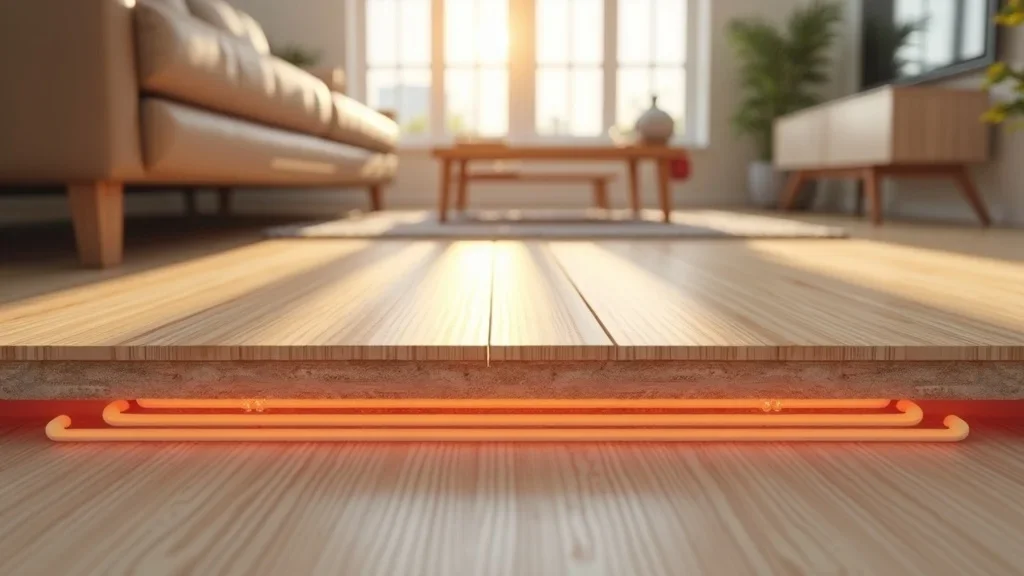
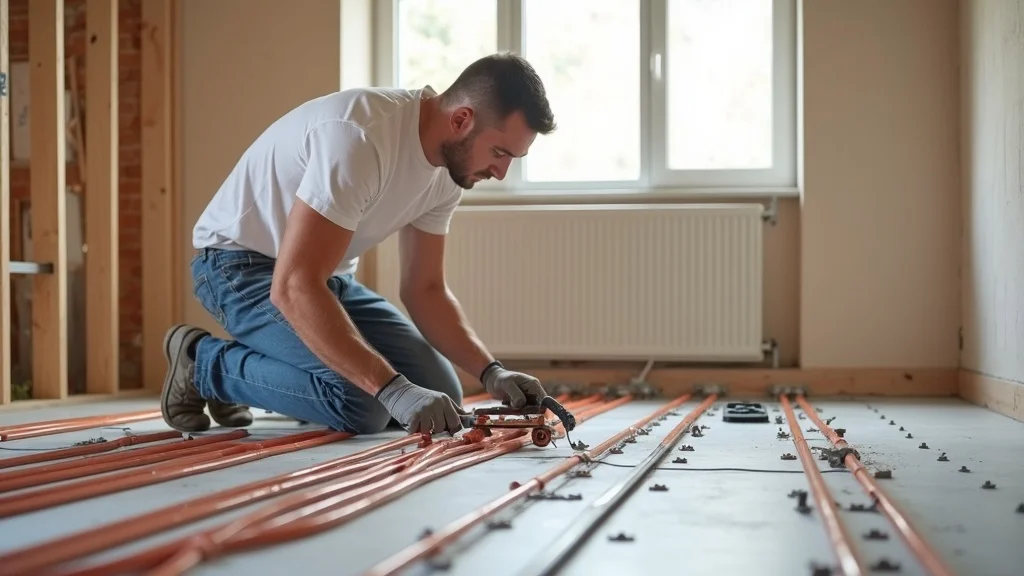

Write A Comment